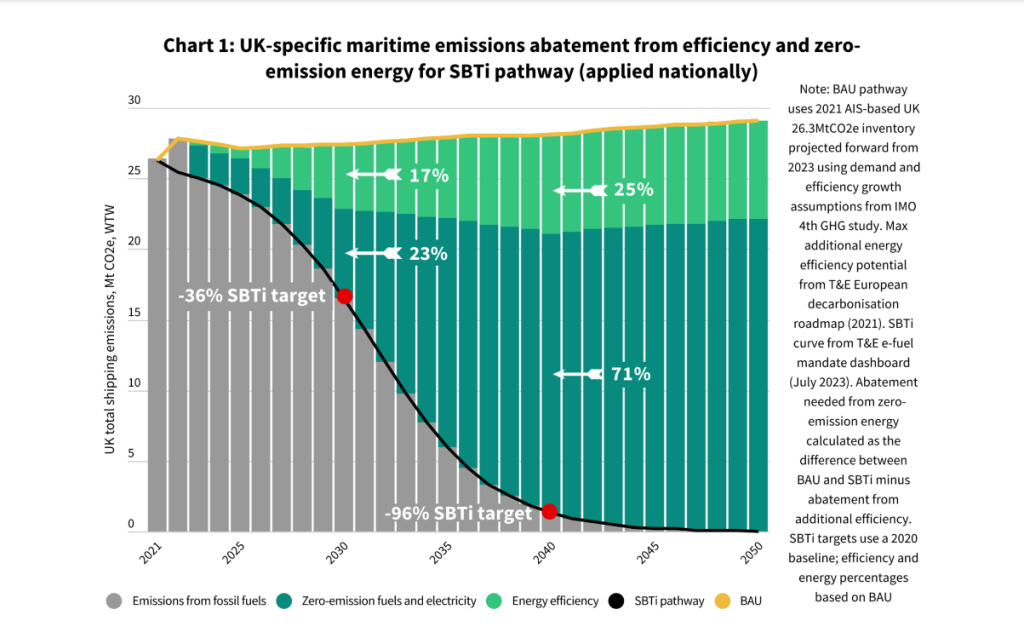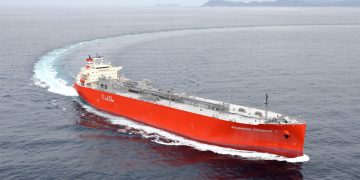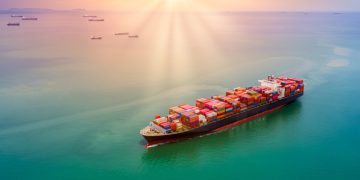Environmental NGO Transport & Environment (T&E) presents a set of initiatives that the UK country could introduce into the Clean Maritime Plan in order to improve its regulatory framework regarding shipping emissions.
According to T&E, in 2021, UK shipping burned through 7 million tonnes of fossil marine fuels, producing 26.3 million tonnes of carbon dioxide equivalent – nearly 20% of all of the UK’s transport greenhouse gas emissions. Despite the pressing need to eliminate these emissions in line with the Paris Agreement and Net Zero, the UK has “no credible policies” for shipping emissions to meet the requirements of the sixth Carbon Budget, according to the Climate Change Committee.
The UK should therefore introduce the following requirements as conditions of entry on all ships calling at UK ports:
- A well-to-wake (WTW) energy greenhouse gas intensity (GHGi) standard measured in grammes of carbon dioxide equivalent per megajoule (gCO2e/MJ), to progressively increase the use of zero/near-zero-emission energy
- A mandate for the use of a percentage of renewable fuels of non-biological origin (RFNBOs) to guarantee essential investment before 2030 (which could be partly supported by a maritime Contract for Difference funded via a levy on UK marine fuel sales); and
- A mandate for ship energy efficiency improvement to ensure the 2030 target can be met, and the most economical use of shipping energy in the long-term. This could be achieved by requiring all ships to demonstrate they meet the uppermost energy efficiency standard (label “A”) under the International Maritime Organization (IMO) Carbon Intensity Indicator (CII).

Independent legal analysis undertaken for T&E shows that the UK already has the necessary primary legislative powers to obligate all vessels calling at UK ports to comply with the above measures. T&E recommends that as a first step, the Government should announce its intention to consult on the above framework, and do so in the forthcoming refreshed Clean Maritime Plan.
The case for a robust and ambitious legal framework for UK maritime energy that is equal to the challenge of Net Zero is loud and clear. The course forward for the UK is clearly charted. The UK must set sail.
… highlights the NGO




























































